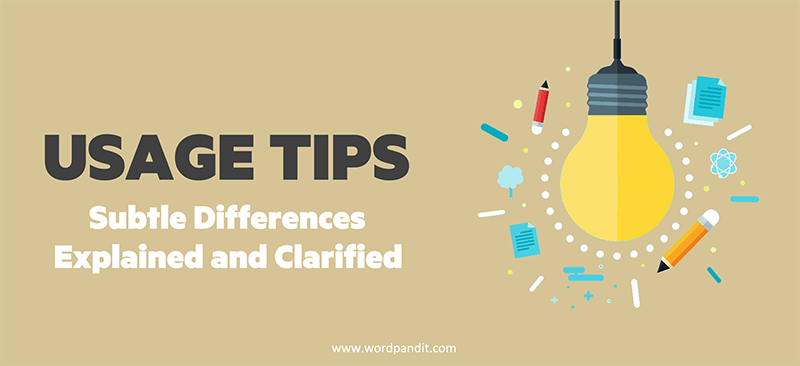Detract vs. Distract: Unraveling the Confusion ✨🤓
Hey there, word nerds! Today, we’re diving into a common word mix-up that even the most seasoned speakers can stumble upon: detract and distract. 🤔 These two words might sound a bit similar and often show up in related contexts, but they have distinct meanings. Understanding the difference can make your communication sharper and clearer. Imagine trying to make a powerful speech, but instead, you confuse the crowd with mixed-up vocabulary—that’s exactly why we’re here to sort this out! 🎤📝 Let’s explore these words in depth so that you’ll never mix them up again.
What Do They Mean?
Detract (dɪ-ˈtrækt)
To take away or diminish the value or importance of something. When you detract from something, you’re lessening its worth or impact. ⚖️⬇️ In other words, it means to reduce the shine or the quality of something by pointing out flaws or causing distractions that make it seem less impressive.
- Etymology: Originating from the Latin word “detractare,” which means “to pull away or reduce.” 📜 The history of this word gives us a clue—it’s all about pulling something down or away, reducing its impact or value.
- Example: “The loud music detracts from the elegance of the dinner party.” 🎶🚫🎩 Imagine a fancy event, where soft classical music would have set the perfect tone, but instead, blaring pop music makes it feel less sophisticated. That’s a perfect example of how something can detract from the desired atmosphere.
- Synonyms: diminish, reduce, lessen, belittle, degrade
- Antonyms: enhance, boost, amplify, augment, elevate
Distract (dɪ-ˈstrækt)
To draw someone’s attention away from what they are doing or thinking about. When you distract someone, you’re breaking their focus. 😵💫👀 It’s like that nagging ping from your phone that takes you away from important work.
- Etymology: From Latin “distrâhere,” meaning “to draw apart.” 📖 The word’s origin hints at its purpose—to pull someone’s focus in a different direction, away from what they should be concentrating on.
- Example: “He tried to study, but his phone kept distracting him.” 📱🙄 Picture trying to read a dense textbook, but every few minutes your phone buzzes with a new message—goodbye focus! That’s exactly what distract means.
- Synonyms: divert, sidetrack, preoccupy, disturb, interrupt
- Antonyms: focus, concentrate, engage, immerse, fixate
The Differences, Simplified
Think of detract as taking value away, while distract is all about pulling focus away. 🎯 Imagine you’re admiring a beautiful painting. 🖼️ If someone starts pointing out flaws in the painting, they detract from its beauty. They make it seem less wonderful by focusing on the negative aspects. On the other hand, if someone keeps asking you random questions while you’re trying to look at the painting, they’re distracting you from enjoying it. 🤷♂️ Distraction takes away your ability to concentrate, whereas detraction takes away value or quality from the thing itself.
In Context
- “The constant noise in the background detracts from the quality of the performance.” 🔊❌🎶 In this case, the noise makes it harder for the audience to appreciate the quality of the performance, thereby reducing its overall impact.
- “During the presentation, his friend tried to distract him by making funny faces.” 😂👀 Here, the friend is making it hard for him to maintain focus, pulling his attention away from the important presentation.
In these examples, detract is all about reducing the quality or impact of something, while distract involves taking someone’s attention away from the task at hand. 🧠💫 Remember, one is about value, and the other is about focus.
Mnemonic Device
To help remember the difference, think of detract as “de-value” (both words start with “de”) and distract as “divert attention.” Easy, right? 🤓💡 Another way to remember is to visualize the word distract as a series of arrows pointing away from the task at hand—pulling attention in every direction. For detract, think of a minus sign taking away from something’s value. 🧠✨
Related Words
If you find detract and distract interesting, you might also enjoy exploring word pairs like deflect vs. reflect or disperse vs. dispel. 🌀🔄 These pairs can be equally tricky but just as fun to master! Words like these often look and sound similar, but have nuanced differences that can make a big impact in your communication. Expanding your vocabulary with these subtleties will make you a more articulate speaker and writer. 📚✨
Detract vs. Distract: Test Your Knowledge 📝💡
1. The constant interruptions tended to ___ from her confidence while speaking. 🗣️🔕
2. True or False: “Distract” means to take value away from something. 🧐
3. He found it hard to focus on his work because the TV kept ___ him. 📺🌀
4. Which of the following is a synonym of “Reduce”? 🔻
5. The critic’s harsh comments were meant to ___ from the artist’s success. 🖌️❌
6. Which word has its origins in Latin meaning “to pull away or reduce”? 📜🔍
7. Fill in the blank: The bright lights were enough to ___ his attention away from the task at hand. 💡👀
8. True or False: “Detract” can be used to describe breaking someone’s focus. 🤔
9. During the debate, his opponent tried to ___ from his argument by pointing out unrelated issues. 🤨💬
10. Which word means “to draw someone’s attention away”? 👀💫













